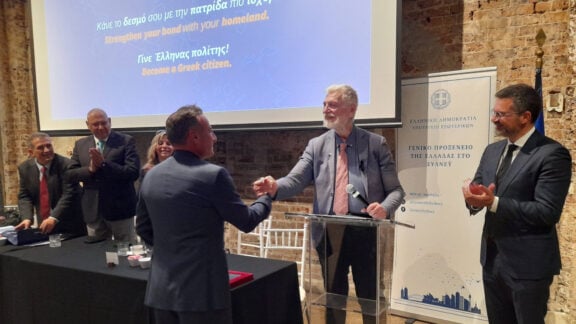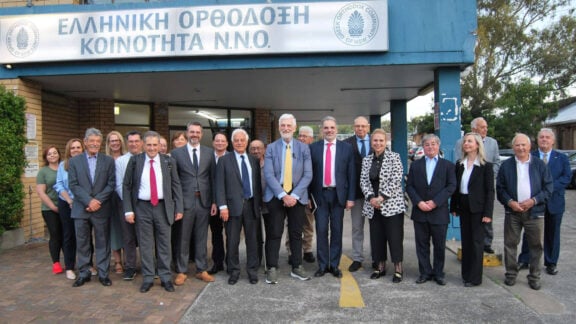What does a good death look like? What does it mean for different communities? These were the questions at the centre of the Municipal Association of Victoria State-wide Forum, which gave insight into diversity of ceremonies and rituals around death.
Pronia represented the Greek community at the forum, giving insight on the topic of dying, death and bereavement in a Greek Orthodox setting.
When our parents age, many families may have unrealistic expectations, and have difficulty accepting that their loved one is dying.
To help, councils across Victoria are collaborating to find ways to engage the community more effectively, particularly culturally and linguistically diverse (CALD) communities with regards to end-of-life issues and challenges.
Currently, only 14 per cent of the population passes away at home. But 75 to 80 per cent would prefer to die at home according to data gathered from a variety of municipal and other services and research from La Trobe University.
When it comes to the government’s involvement in the community, councils are the closest conduit, engaging with a child from the time it is born through maternal child centres. So how does Council support and engage with diverse communities, particularly at the end of life? What is, or should, the role of local government be as people age?
READ MORE: A good death is a ‘fundamental human right’, says Health Minister Mikakos
There are various collaborations and initiatives cross regionally to encourage community participation, as well as to shift the focus of care from hospital-based towards a community and home service focus. This is because the current hospital care model was developed during a time when infections and injuries were the main causes of death. But that has since shifted, with chronic illnesses like dementia now a leading cause of death.
When a person dies, there are at least 10 other people affected and directly impacted by the death. Data shows that a carer doesn’t cease to be socially isolated after the death of the care recipient. So we need a social change. End of life is everyone’s business.
The forum provided great insight into the differences and commonalities in how various people and communities respond to death.
Death cafés, Day of the Dead celebrations, Death Art exhibitions, and the celebration of Halloween which gains more popularity each year, are ways to start conversations and to normalise death as part of life. Language around ‘end of life’ needs to be considered and can be a barrier to many.
Part of Melbourne’s 2026 strategic goals is to overcome the taboo, and have conversations around death, and to simply look at it as one of life’s transitions. To make death everyone’s business, including councils, neighbourhood houses, and community organisations. When it comes to services, the aim is give everyone that is diagnosed with a life-limiting illness access to palliative care services as needed from day one.
Emphasis should be on living well and dying well – which is a necessity as people live longer with terminal conditions. Carers care longer nowadays and need overnight support, quality after-hours services, care for someone at home, good bereavement support. Meanwhile those with disabilities and psychosomatic illnesses are more vulnerable as they often don’t live well and don’t die well.
A specialist 24 hour palliative care end of life advice program will be launched in early 2020.
Pronia’s ‘Mazi’ Palliative Care program for carers of people living with life-limiting illnesses offers monthly information sessions and recreational activities for carers to inform, support, and advocate for their needs.
Next session: ‘Spiritual and Pastoral Care Services in a hospital setting’
When + Where: Monday 11 November at Clayton Community Centre (9 – 15 Cooke Street, Clayton) from 10.30 am-11.30 am, and Thursday 14 November at Pronia’s Head Office (7 Union Street, Brunswick) from 10.30 am-11.30 am.
What? The sessions will provide information on what spiritual care is, how patients can access this service in a hospital, what the benefits of accessing the service are for a patient, and also who provides the service.
For more information on Pronia’s Palliative Care program and to register your interest in the monthly sessions, contact Adonis Maglis (Mondays) or Anton Anagnostou (Thursdays & Fridays) on (03) 9388 9998.
* Adonia Maglis is a Community Education Officer at Pronia.









